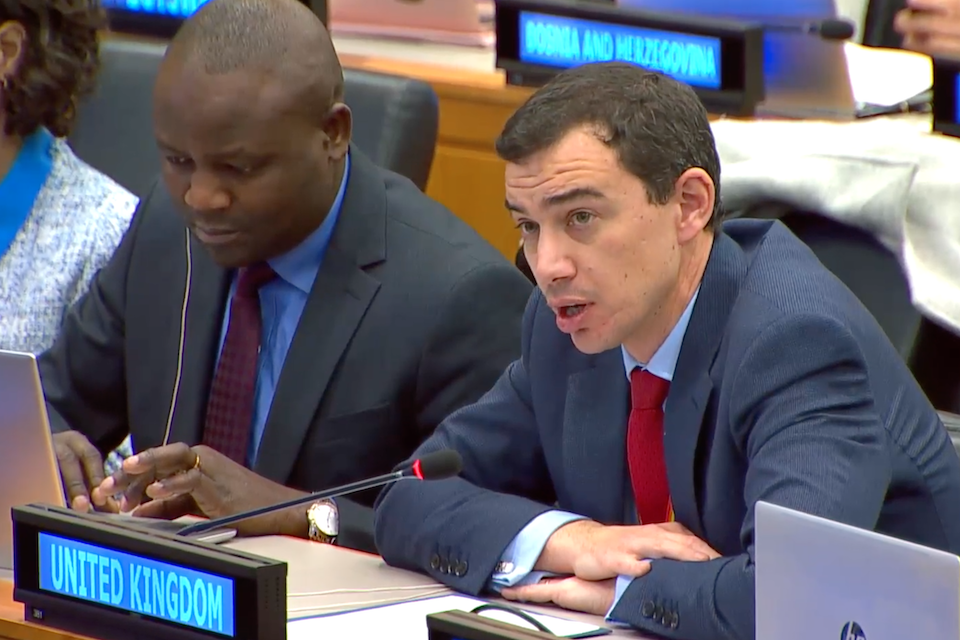The UK is committed to building a fairer international tax system for all: UK statement at the UN Second Committee
Explanation of vote by Ambassador to the General Assembly Richard Croker at the UN Second Committee.

The UK strongly supports developing countries’ efforts to scale-up domestic resource mobilisation to finance sustainable development.
At the UN General Assembly this year, our Deputy Prime Minister announced a new £17 million package to help developing countries collect taxes owed to them. We are funding peer-to-peer capacity building for revenue authorities in African countries including Ghana and Rwanda. We currently chair the OECD Forum on Tax Administration’s Capacity Building Network and we are contributing to the UNDP-OECD Tax Inspectors Without Borders initiative.
As I set out earlier, our new International Development White Paper published on Monday commits to building a stronger and fairer international tax system for all.
We champion this work through the OECD’s Inclusive Framework on Base Erosion and Profit Shifting and the Global Forum on Tax Transparency, which uniquely have the technical expertise, wide-reaching global membership, and political support to advance this agenda effectively through consensus-based policy-making.
These are strengthening our collective ability to address tax evasion and avoidance, combat harmful tax practices, and tackle evolving challenges posed by digitalisation.
We are also supporting efforts to strengthen the inclusion and voice of developing countries in these mechanisms.
As we have acknowledged during negotiations on this resolution, we think there is space for intergovernmental discussions on tax at the UN, which builds on existing initiatives. We believe it is possible to achieve this without duplicating the work of the Inclusive Framework and Global Forum, putting greater resource burdens on countries or fragmenting the international tax system.
Proceeding with Option 2, a “framework convention”, would be duplicative and create a parallel system rather than a complementary process. This risks fragmenting the international tax system, and would be negative for all countries.
That is why we and many others are not able to support this resolution today.
Any new process on tax at the UN should be based on a broad consensus to be effective. Unfortunately, as we have seen from the vote just now, this resolution does not command a consensus, with over a third of all Member States not supporting it today.
That is why we proposed a compromise based around Option 3 of the Secretary General’s report which could have achieved consensus, and put that to a vote. We hope that members continue to see that as an option which can be returned to in the future.
Thank you.